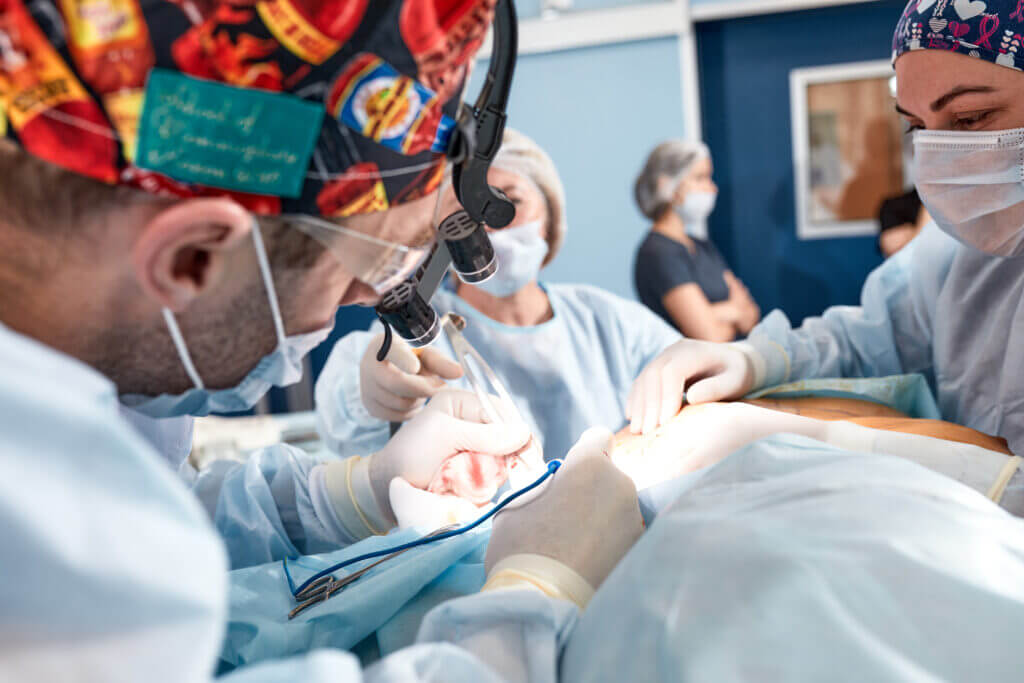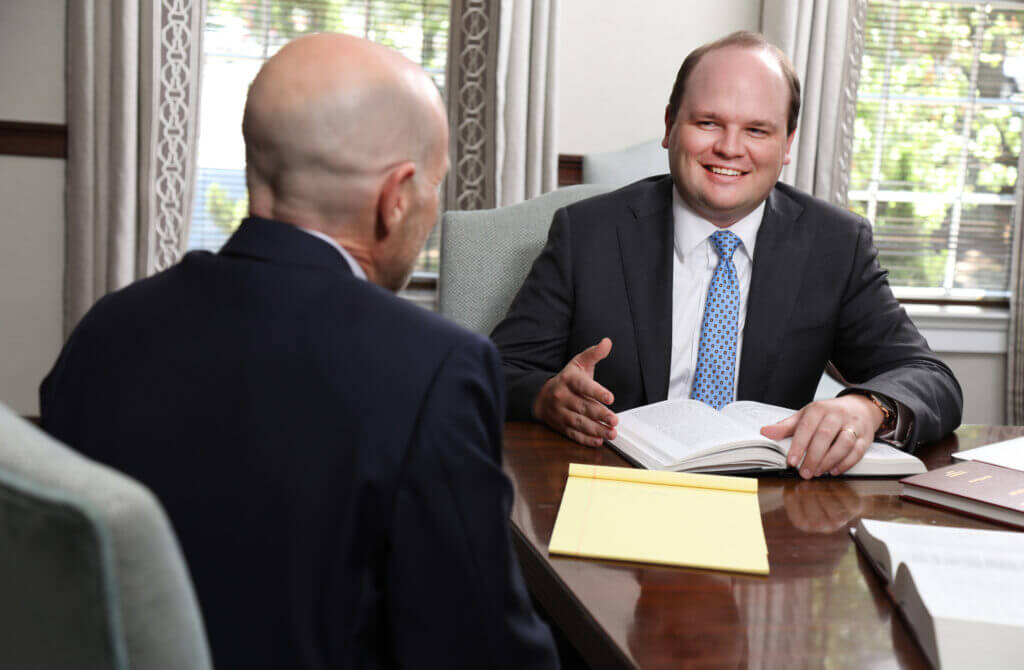If you or a loved one has suffered because a surgeon performed the wrong procedure, you are not alone. Surgical errors can have life-altering consequences. At Blasingame, Burch, Garrard & Ashley, P.C. our experienced medical malpractice attorneys are here to help you navigate this challenging time and pursue the justice and compensation you deserve.
Understanding Wrong Surgery Cases
When you require a surgical procedure you expect the surgeon, nurses, and the rest of the surgical team to give you the best care possible. Unfortunately, this doesn’t always happen. When surgical teams are understaffed and overworked, mistakes can happen. Below is some information about why wrong procedures happen and what you can do if it happens to you or a loved one.

Examples of Wrong Procedures
Some examples of wrong procedures may include the following:
- Performing surgery on the wrong body part
- Conducting a completely different surgery than what was scheduled
- Operating on the wrong patient
- Incorrectly placing or failing to remove surgical devices or implants
How Does a Wrong Surgery Happen?
Several factors can contribute to wrong surgeries. Miscommunication amongst surgical team members, inaccurate or incomplete medical records, mixing up patients, inadequate pre-operative planning or verifications, or failure to follow established safety protocols can all lead to the wrong procedure being performed on a patient.
Who is Responsible When the Wrong Surgery is Performed?
When a wrong procedure is performed, several parties could potentially be held liable depending on the circumstances of the case. Here’s a breakdown of possible liable parties:
- Surgeon
The surgeon is often the primary party held responsible in cases of wrong procedures. If the surgeon failed to adhere to the standard of care, such as by not verifying the correct procedure, surgical site, or patient, they could be liable for any resulting harm.
- Surgical Team Members
Other members of the surgical team, including nurses, anesthesiologists, and surgical technicians, might also share liability if their negligence contributed to the error. For example, if a nurse failed to follow protocols for patient identification, or if an anesthesiologist did not properly monitor the patient, they could be held accountable.
- Hospital or Surgical Center
The facility where the surgery was performed can also be held liable. Hospitals and surgical centers have a responsibility to ensure that their staff are adequately trained, and that proper protocols and procedures are in place to prevent such errors. This includes maintaining accurate records, providing adequate staffing, and ensuring a safe surgical environment.
- Supervising Physicians or Staff
If the surgeon or any other responsible party was supervised by another medical professional or staff, that supervisor might also be liable. This could occur if the supervising party failed to properly oversee the surgical process or did not adequately address known risks.
- Manufacturer of Medical Devices or Equipment
In some cases, the error may be traced back to a malfunctioning or defective medical device or equipment used during the surgery. If a piece of equipment or device played a role in the wrong procedure being performed, the manufacturer could be liable under product liability laws. Click here to learn more.
- Healthcare System
The larger healthcare system, including any entity that owns or operates the hospital or surgical center, can also be liable, especially if systemic issues or policies contributed to the mistake. This includes issues related to understaffing, poor training, or inadequate patient safety measures.
Common Injuries Because of Wrong Surgeries
- Infection or complications from unnecessary surgery
- Permanent disability or disfigurement
- Psychological trauma
- Prolonged recovery time and additional surgeries
- Increased medical expenses and lost wages

Preventing Wrong Surgeries
To prevent wrong surgeries, surgical teams should adhere to strict safety practices including implementing a standardized “time-out” procedure before surgery to confirm the patient, procedure, and surgical site; using checklists and double-checking patient information, consent forms and surgical plans; ensuring all team members are adequately trained and aware of safety protocols; and utilizing technology such as barcoding and electronic health records to minimize errors.
Understanding Wrong Surgery Cases
Statute of Limitations
In Georgia, the statute of limitations for medical malpractice cases is generally two years from the date the injury or wrongful procedure occurred. However, some exceptions and nuances might extend this time limit, such as discovering the injury later due to the malpractice being concealed. It’s crucial to act promptly to ensure your case is filed within the legal period. If you are unsure whether you have a valid case fill out our contact form and we will review your circumstances and be in touch.
MALPRACTICE ATTORNEYS IN GEORGIA
- What is Medical Malpractice Under Georgia Law?
- Is There Anything Else I Need to Prove?
- How Can I Prove a Medical Malpractice Claim?
- What are Some Common Examples of Medical Malpractice?
- Will a Medical Malpractice Case Take a Long Time?
- Can an Athens, GA Medical Malpractice Lawyer Help?
- Schedule a Consultation with Athens, GA Medical Malpractice Attorneys
What Needs to Be Proven?
To succeed in a medical malpractice case involving wrong surgery, the following elements must be established:
- Duty of Care: The medical professional owed a duty of care to the patient. This means they were responsible for providing the standard level of care expected in their professional capacity.
- Breach of Duty: The medical professional breached this duty by performing the wrong procedure. This could be due to negligence, miscommunication, or failure to follow proper protocols.
- Causation: The breach of duty directly caused harm or injury to the patient. It must be shown that the wrong surgery led to the specific injuries or complications suffered by the patient.
- Damages: The patient suffered actual damages because of the wrong procedure, including physical harm, emotional distress, additional medical expenses, or lost wages.
How an Experienced Medical Malpractice Attorney Can Help
An experienced medical malpractice attorney can provide invaluable assistance by gathering all necessary evidence, including medical records, expert testimonies, and witness statements to build a strong case. Our skilled attorneys have over 40 years of experience navigating complex medical malpractice cases. It’s crucial you hire an attorney who understands the intricacies of medical malpractice law and procedural requirements in Georgia to ensure your case is filed correctly and promptly. We can also engage with the insurance companies and other parties to negotiate a fair settlement that will cover all your damages. If a fair settlement can’t be reached, we are prepared to take your case to trial and advocate on your behalf.
Trust Our Georgia Medical Malpractice Team to Fight for You
If you or a loved one has suffered because a surgeon performed the wrong procedure, you are not alone. Surgical errors can have life-altering consequences. At Blasingame, Burch, Garrard & Ashley, P.C. our experienced medical malpractice attorneys are here to help you navigate this challenging time and pursue the justice and compensation you deserve.

Contact Us Today
If a surgeon performed the wrong procedure on you or a loved one, don’t wait to seek legal assistance. Contact us today for a free consultation. Let us help you get the justice and compensation you deserve. Call us at 706-354-4000 or fill out our online contact form to speak with one of our experienced Georgia medical malpractice attorneys. We take cases across Georgia and there is no fee unless we recover money for you in your case.
